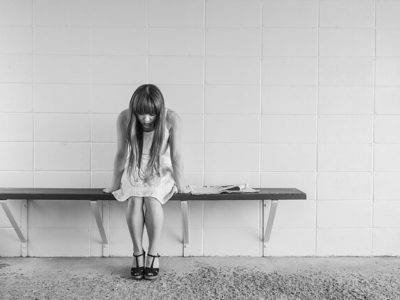“You’ll get over it really soon,” my parents said. “Depression isn’t a real thing.”
“Why in the world would you need to see a doctor for this? It’s just a waste of money.”
These ideas were drilled in my head growing up. My parents couldn’t imagine their child having depression. Many first-generation Asian American families come a long way to America, and there’s no room for any problems their children face here.
For most of my life, the endless routine of swimming lessons followed by tennis lessons followed by violin lessons was normal. This relentless cycle of activities and not being allowed to complain is the way many Asian American kids grow up. We’re told that it’s for our “own good,” that we should be thankful for having these chances and that we shouldn’t be sad since there are kids starving in Africa—kids for whom we should also spend some of our time raising money to help.
Many nights before I went to sleep, constant arguments between my parents about money and what was best ate away at me. Would I have to be a doctor because my parents said that studying liberal arts was for people who want to live in basements and eat cheese puffs? Am I a bad Asian child for not wanting to either become a doctor, or find a rich husband and just act the housewife?
I could never walk into my house without hearing, “We love you so we will yell at you,” or “Why can’t you ever do anything right?” Up to this day, those words still linger and I do not truly mean it when I say, “I’m going home” when I return to my parents. Although I have come to accept that this is how my parents show their care for me, forcing myself to unwillingly adapt to this lifestyle contributed to my fall into depression.
There was no outlet that I could turn to to understand if the emotions I felt were normal. As a millennial child, social media plays a strong role in my life. So I tried to watch typical teenager shows such as Degrassi or read articles about depression but so many of these shows illustrated characters with cookie-cutter backstories. I just couldn’t relate. It was perfectly fine for children of American families to seek help from a psychologist, but none of these children were dealing with the oppressive first-generation family issues.
Once I left for college I thought that everything would be different because I would be away from my parents, but I was sadly mistaken.
There were days during my first semester of freshman year when warm feelings of opportunity and chance bubbled inside me, but alas, these aren’t the feelings I remember most clearly. Wanting to skip classes because depression chained me to my bed and not being able to swallow a morsel of food because I felt nauseated are the awful feelings I remember vividly.
These horrible feelings that I felt were linked to the fact that I had broken up with my first serious boyfriend, I couldn’t find people that I could relate to and I had to deal with the ever-increasing pressure my parents put on me.
At some point during first semester like a ticking time bomb at the end of its countdown, I finally let my friends see my inner feelings. I spent an hour on the ground crying and texting my new college friends to come help me. Within the hour, five amazing humans came to my side and each one took the time to comfort me, hold me and let me know that it was going to be okay. Instead of calling my feelings “fake” or saying “it isn’t a big deal,” they acknowledged my struggle. Knowing they could only offer so much advice, my friends suggested that I go see a psychologist or a psychiatrist.
I saw a school psychologist in November of 2014. She didn’t belittle my problems or question if I was lying. She accepted the events that happened in my life and ruled that I was and am clinically depressed. Though she moved to another school, Boston College has been able to match me with someone I can relate to with my struggles of being a first-generation Asian American.
Although my depression isn’t gone yet, I have certainly come a long way since being told, “depression isn’t real.” I’m not scared to share my experiences with others anymore. I’ve found that sharing my story has helped others face their feelings, as well as helping me cope. My parents are aware that I see a professional for my mental health, and though they still don’t understand my feelings, they let me freely make decisions for myself such as seeing a psychologist.
I’d be lying if I said that I’m happy with how mental illness is portrayed in many different places. We can’t change the situations that students or people are put in, and we can’t change how poorly Degrassi depicts real problems (exhibit A, Drake in a wheelchair). But let’s at least sit down and talk about the issues at hand. At least by talking about these problems people might feel more at ease and more compelled to talk about the problems that they face, no matter their background.



















